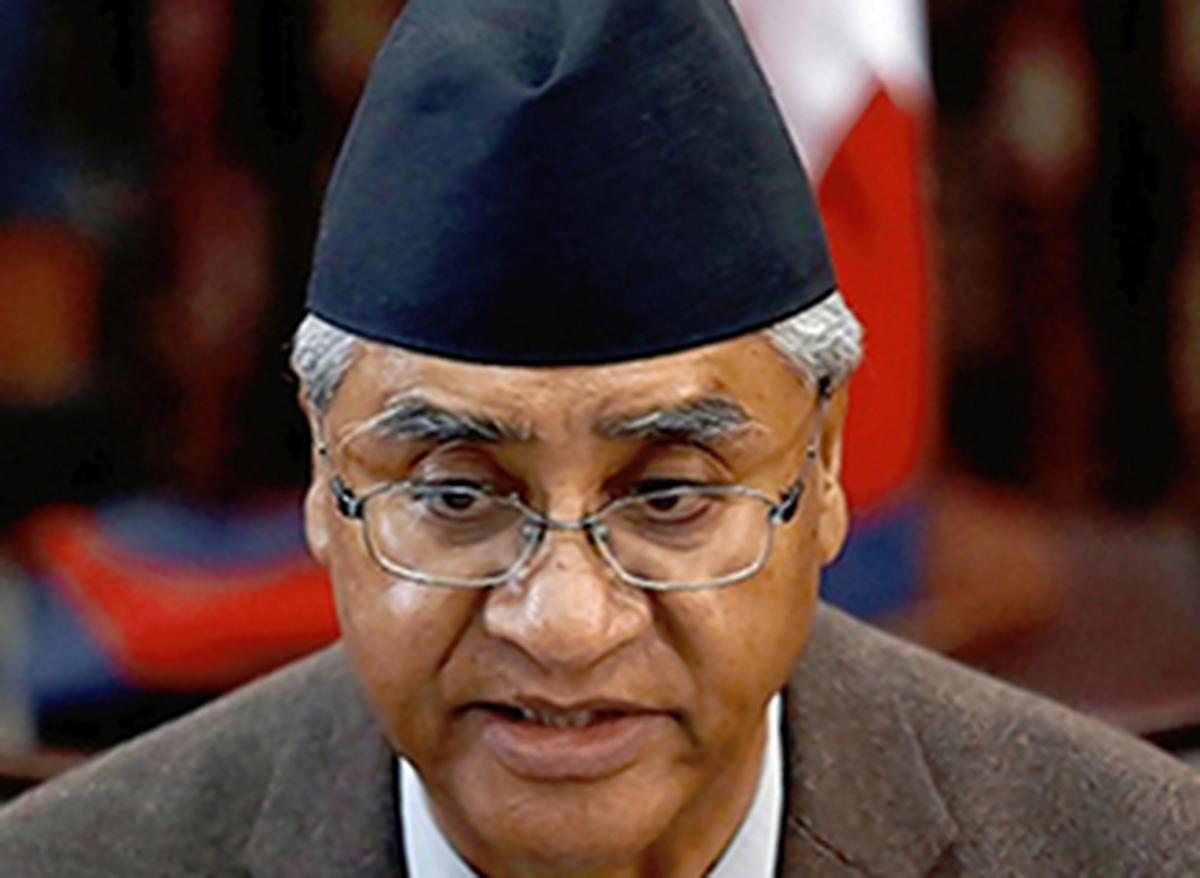
PM Deuba wins HoR seat from Dadeldhura in Nepal polls
The Hindu
Mr. Deuba has never lost any parliamentary election in his five decades of political career
Prime Minister Sher Bahadur Deuba has been elected with a huge margin of votes from the Dadeldhura constituency in far west Nepal for the seventh consecutive time.
Mr. Deuba, 77, secured 25,534 votes against his nearest rival Sagar Dhakal, 31, an independent candidate who received 1,302 votes. Mr. Deuba has never lost any parliamentary election in his five decades of political career.
Mr. Dhakal is a young engineer, who had a verbal squabble with Mr. Deuba during a public debate at BBC's Sajha Sawal program five years ago, after which he decided to challenge Mr. Deuba saying that now youths should get chance in politics and senior people like Mr. Deuba should get rest.
Nepali Congress president Mr. Deuba is currently holding the post of Prime Minister for the fifth term.
The ruling Nepali Congress has so far bagged 10 seats in the House of Representatives (HoR) while it is leading in 46 other constituencies.
The CPN-UML led by K.P. Oli has so far bagged three seats and is leading in 42 constituencies.
Elections to the HoR and seven provincial assemblies were held on Sunday. The counting of votes started on Monday.

“Writing, in general, is a very solitary process,” says Yauvanika Chopra, Associate Director at The New India Foundation (NIF), which, earlier this year, announced the 12th edition of its NIF Book Fellowships for research and scholarship about Indian history after Independence. While authors, in general, are built for it, it can still get very lonely, says Chopra, pointing out that the fellowship’s community support is as valuable as the monetary benefits it offers. “There is a solid community of NIF fellows, trustees, language experts, jury members, all of whom are incredibly competent,” she says. “They really help make authors feel supported from manuscript to publication, so you never feel like you’re struggling through isolation.”

Several principals of government and private schools in Delhi on Tuesday said the Directorate of Education (DoE) circular from a day earlier, directing schools to conduct classes in ‘hybrid’ mode, had caused confusion regarding day-to-day operations as they did not know how many students would return to school from Wednesday and how would teachers instruct in two modes — online and in person — at once. The DoE circular on Monday had also stated that the option to “exercise online mode of education, wherever available, shall vest with the students and their guardians”. Several schoolteachers also expressed confusion regarding the DoE order. A government schoolteacher said he was unsure of how to cope with the resumption of physical classes, given that the order directing government offices to ensure that 50% of the employees work from home is still in place. On Monday, the Commission for Air Quality Management in the National Capital Region and Adjoining Areas (CAQM) had, on the orders of the Supreme Court, directed schools in Delhi-NCR to shift classes to the hybrid mode, following which the DoE had issued the circular. The court had urged the Centre’s pollution watchdog to consider restarting physical classes due to many students missing out on the mid-day meals and lacking the necessary means to attend classes online. The CAQM had, on November 20, asked schools in Delhi-NCR to shift to the online mode of teaching.









